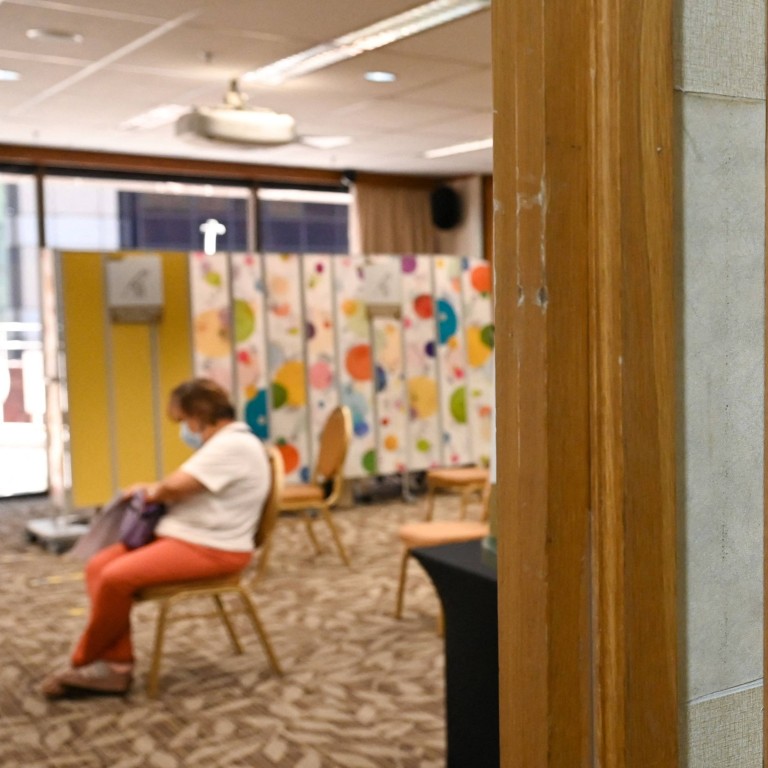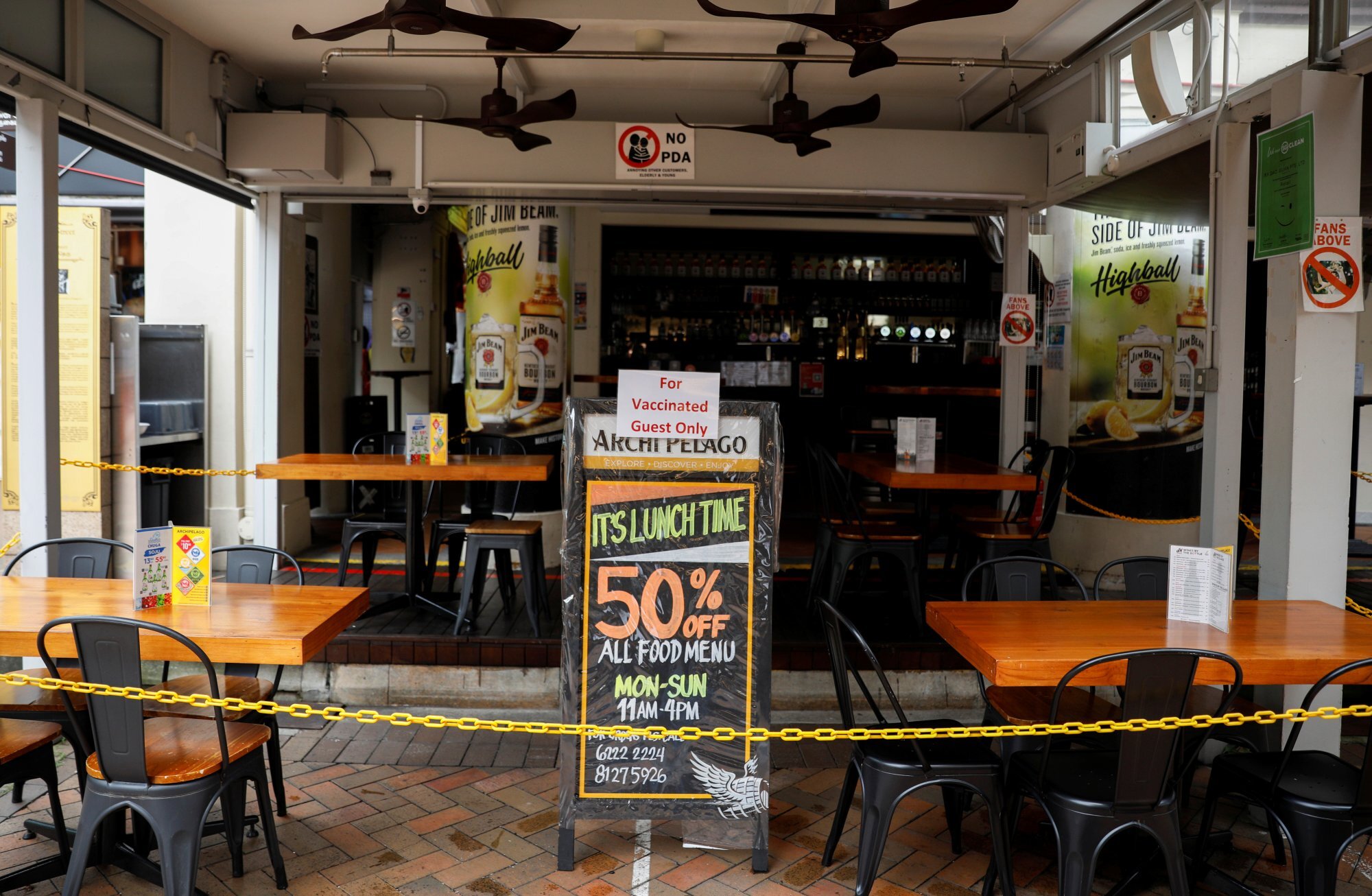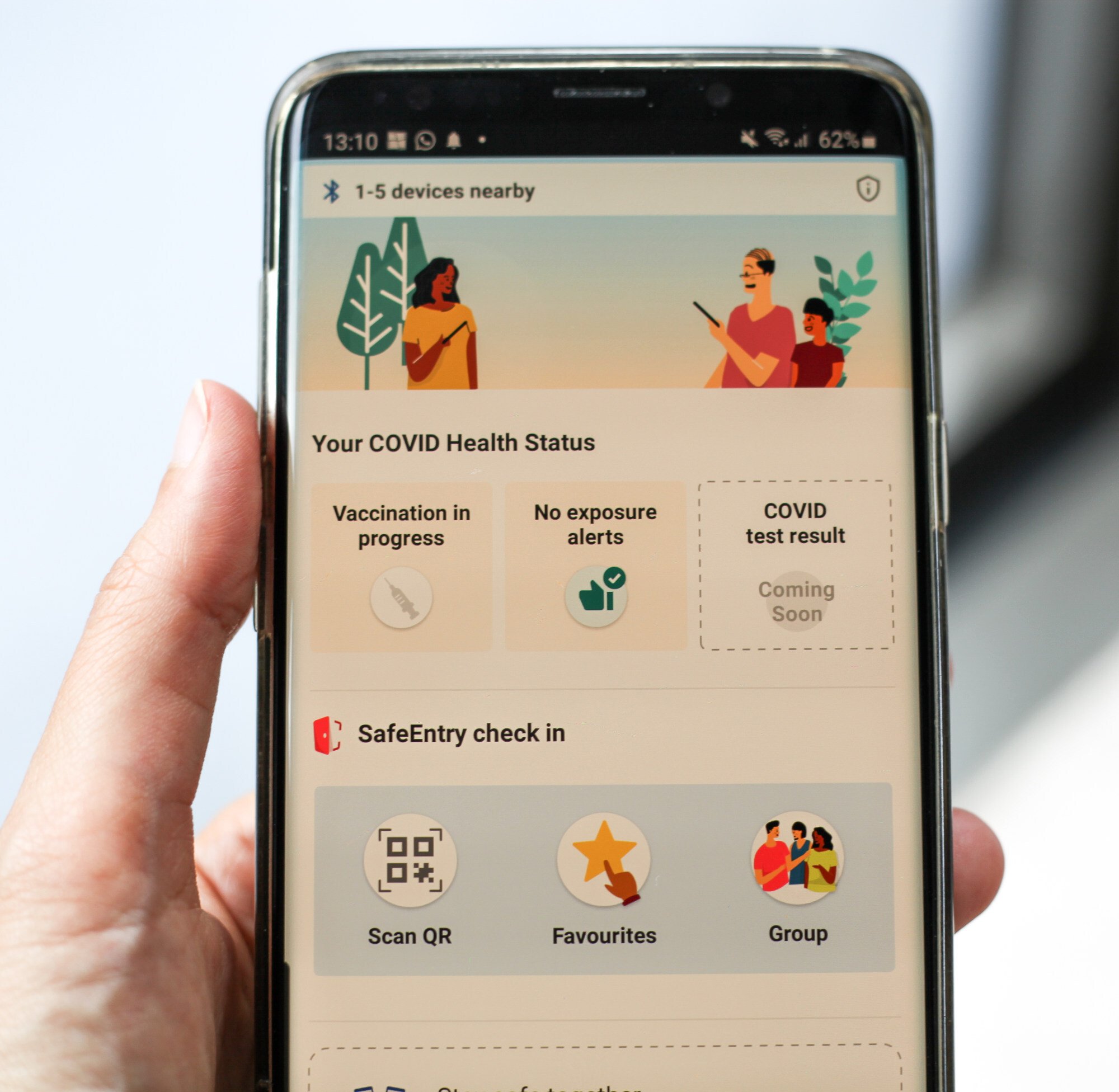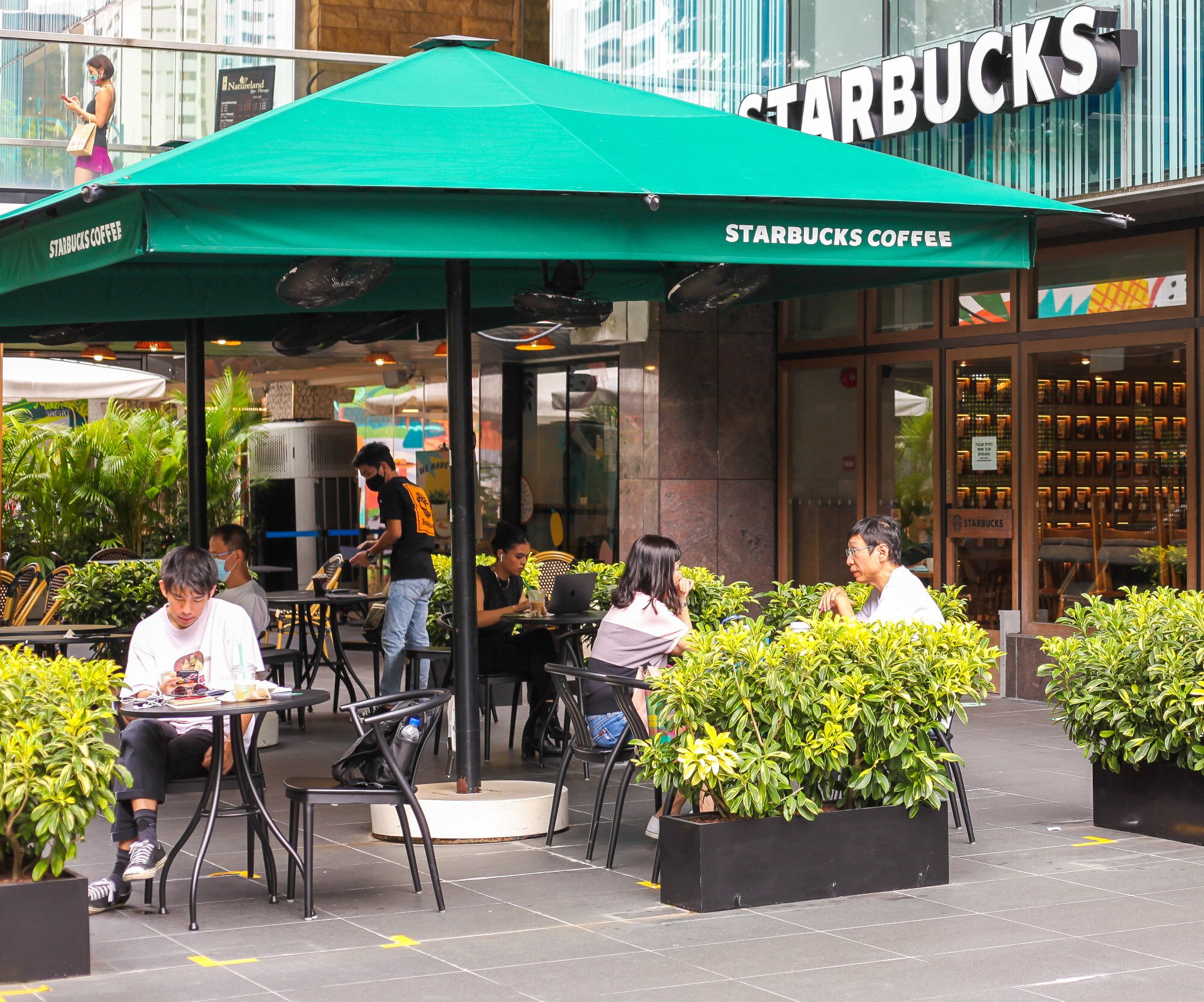
Singaporeans, whether vaccinated or refusing to be jabbed, feel a social divide over coronavirus
- A mother-of-two who had held off against getting vaccinated ‘felt like a social outcast’ when Singapore announced segregation measures for the unvaccinated
- She got jabbed, but a breastfeeding mother has not and says ‘If people want to judge me, it’s on them’. A vaccinated woman laments the division over jabs
When the Singapore government announced strict segregation measures in August for those who were not yet vaccinated against Covid-19, it had an immediate desired effect. Vaccination numbers surged, from 70 per cent who had completed the two-shot regimen as of August 8, to 78 per cent just two weeks later.
Restaurants reopened to in-person dining on August 10 for those who were fully vaccinated, and a week later, strict work-from-home rules eased, allowing as many as 50 per cent of employees to return to the office. Shopping malls and cinemas were allowed to expand capacity for those who were vaccinated, and temperature screenings at entrances stopped.
Those who did remain unvaccinated felt they were being ostracised.


“I was concerned about myocarditis (inflammation of the heart muscle), which is one of the [potential] adverse side effects of the vaccine,” she says.
But when the government announced the new restrictive measures for unvaccinated people, Mrs Ong felt “pressured” into booking her vaccination. “I felt like a social outcast,” she said, “so I reluctantly decided to get the vaccine so that I could have a sense of freedom again.”
Herd immunity not even close, we must live with the virus, doctor says
She opted for the Pfizer jab and has completed one of the two shots so far. After the first one, she said she felt tired and had headaches and nausea for two days. While awaiting her fully vaccinated status – which doesn’t come into effect until two weeks after the second jab – she eats at home and doesn’t socialise as she used to.
Regulations that went into effect on August 10 prohibit unvaccinated people over the age of 13 from dining in food and beverage outlets, except for hawker centres. Unvaccinated individuals are also prohibited from using indoor gyms or joining indoor mask-off fitness classes, and have been encouraged to restrict their movements to group sizes of two people.
There are ways around this, but they can be costly. An unvaccinated person may dine inside a restaurant by presenting a negative Covid-19 test result from an approved medical clinic that charges S$30 to S$65 (US$22.50 to US$48.50) for the test.
I prefer to take my chances on my immune system and the different immune-boosting strategies I’ve been using
Mrs Lim, who did not give her first name to protect her identity, is 42 and works as a dance instructor. She is fully vaccinated and believes getting the jab was a selfless act of service for humanity. “We are all craving connection, and if this can help to rebuild connections, businesses, and help travel reopen, I am happy to do it,” she admits.
She noticed a divide between vaccinated and non-vaccinated people on social media, and believes that misinformation is having a ripple effect on communities.
“Vaccinated people are just getting on with it, but the anti-vaxxers are causing themselves more mental trauma by creating so much anger on social media,” she says.
Singapore fully inoculates 80 per cent of people; Japan mulls mixing vaccines
As of September 13, 81 per cent of Singapore’s population of 5.9 million people had received both doses of the Covid-19 Pfizer or Moderna vaccines. Recently, Singapore allowed other vaccines recognised in the World Health Organisation’s Emergency Use Listing, including Sinovac from China.
Mrs Tan is one of the vaccine holdouts. In her late 30s and currently breastfeeding a five-month-old baby, she cites as the main reason for her decision to forgo the jab the lack of knowledge on the mRNA vaccines’ effect on babies.
“There are no long-term studies on the effect of the mRNA technology on the human body, therefore I prefer to take my chances on my immune system and the different immune-boosting strategies I’ve been using for a while,” she says. Mrs Tan takes vitamin C, D and zinc supplements, and follows a wholefood, plant-based diet, with regular exercise.
How to stay healthy during coronavirus outbreak, flu season
A strong believer in personal responsibility and freedom, Mrs Tan believes that the unvaccinated are discriminated against in Singapore. However, she has “made peace” with the restrictions imposed on her for her choosing not to vaccinate. “If people want to judge me, it’s on them,” she says.
As the world looks ahead to a future free from the pandemic, Mrs Tan would like to see greater education, with a strong emphasis on ways to improve health and physical resilience. This includes taking part in outdoor activities, healthy eating, having faith or spiritual-based practices, and building strong human connections.
After a year and a half of lockdowns, mask-wearing, social distancing, and restrictions on social activities, many residents did get vaccinated to help their nation open up again safely. But as Covid-19 case numbers surged again, the government urged its citizens to reduce non-essential social activities.
Singapore’s Covid-19 surge threatens to overwhelm its hospital services
For many like Mrs Ong, there is a feeling of frustration at the recent announcements.
“Even with over 80 per cent of the population vaccinated, the government is still recommending people avoid social activities, and introducing new testing regulations, which are constantly changing and very confusing,” she laments.
She would like Singapore to return to “normal life”, as has mostly happened in the United States and UK, although she would like to see people continue to wear masks in public places or on public transport.

“We need to accept the fact that most people will eventually get Covid-19, but that most will recover,” she says.
